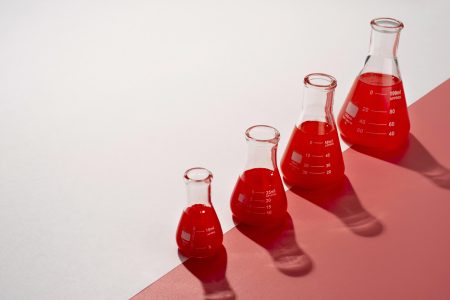This website uses cookies so that we can provide you with the best user experience possible. Cookie information is stored in your browser and performs functions such as recognising you when you return to our website and helping our team to understand which sections of the website you find most interesting and useful.
INNOVATION FUND
Ecoplanta, a project advised by Zabala Innovation, signs Innovation Fund grant agreement
European Commission awards more than EUR 1 billion to innovative EU climate transition projects

On Friday, the European Commission signed grant agreements worth 1.1 billion euros with seven large-scale projects through the Innovation Fund programme, funded from EU Emissions Trading Scheme (ETS) revenues. Among these projects, which aim to reduce emissions by more than 76 million tonnes of CO2(eq) over the first 10 years of operation, is Ecoplanta, which Zabala Innovation helped to succeed.
This project, located in El Morell (Tarragona, Spain), will provide a world-class commercial plant for the European market, using waste that would otherwise end up in landfills. The plant will produce 237 kt/year of methanol, thus recovering 70% of the carbon present in non-recyclable materials. The project will avoid the emission of 3.4 million tonnes of CO2(eq) into the atmosphere during its first 10 years of operation.
High-level representatives of the three founding companies of Ecoplanta – Agbar, Repsol and Enerkem – attended the signing ceremony in Brussels, together with different authorities of the European Commission.
The seven projects use innovative low-carbon technologies on an industrial scale in key sectors such as hydrogen, steel, chemicals, cement, solar energy, biofuels, and carbon capture and storage.
Other projects funded
Located in the port of Antwerp (Belgium), the Kairos@C project, for example, aims to create the first and largest cross-border carbon capture and storage value chain to capture, liquefy, transport, and permanently store CO2. Kairos@C will enable the deployment of several pioneering technologies that together have the potential to avoid the emission of 14 million tonnes of CO2(eq) into the atmosphere during its first ten years of operation.
BECCS aims to create a large-scale bioenergy carbon capture and storage facility at the existing heat and biomass power plant in Stockholm, Sweden. By combining CO2 capture with heat recovery, the project will avoid 7.83 million tonnes of CO2(eq) emissions over the same period. This is more than the total amount of greenhouse gas emissions from electricity and heat production in the public sector in Sweden in 2018.
Located in Oxelösund and Gällivare, Sweden, the Hybrit Demonstration hydrogen production technology demonstration project will replace fossil fuel-based technologies with climate-neutral alternatives, such as the production and use of green hydrogen. The project has the potential to avoid the emission of 14.3 million tonnes of CO2(eq) into the atmosphere. In addition, it will use a technology associated with significant climate benefits for the steel production sector.
The K6 Program aims to produce Europe’s first carbon-neutral cement, becoming a representative project for the cement industry worldwide and supporting the clean energy transition of a sector with emissions that are difficult to reduce. Located in Lumbres, France, the project will employ a pioneering industrial combination of a hermetic kiln and cryogenic carbon capture technology with storage of CO2 in the North Sea that would otherwise be emitted into the atmosphere. This will prevent the emission of 8.1 million tonnes of CO2(eq) into the atmosphere.
Located in Catania (Italy), TANGO will develop an industrial-scale pilot line for the manufacture of innovative, high-performance photovoltaic modules. It will increase production capacity by a factor of 15, from 200 MW to 3 GW per year. Once in operation, the modules produced will have the potential to avoid up to 25 million tonnes of CO2(eq) emissions. In addition, this project will strengthen the value chain of the upstream European PV industry.
Finally, the SHARC sustainable hydrogen and carbon recovery project will reduce greenhouse gas emissions by moving away from fossil fuel-based hydrogen production to renewable hydrogen production (through the introduction of electrolysis) and hydrogen production through the application of carbon capture technology. Located at the Porvoo refinery, in the first ten years of operation, SHARC will avoid the emission of more than 4 million tonnes of CO2(eq).
The role of CINEA and the EIB
The Innovation Fund programme provides financial incentives for companies and public authorities to invest in the next generation of low-carbon technologies and to give EU companies a head start in becoming global technology leaders.
The European Climate, Infrastructure and Environment Executive Agency (CINEA) implements this fund, while the European Investment Bank provides support for the development of promising projects that do not meet the conditions for full implementation. The Innovation Fund also offers small-scale grants. The second call for proposals was launched on Thursday.



